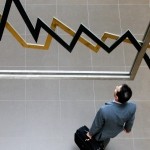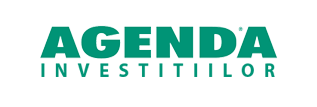 In most of the EU markets was encountered serious problems lately, although these regions are no longer officially in recession, but still faces various structural and geopolitical deficiencies. The current difficulties are more complex than initial estimates and the recovery trend after 2009 continues to be fragile. The so-called structural crisis of the developed countries in the euro area has not been completed, and the respective economies do not seem to become competitive with certain emerging countries, which means that momentum necessary to initiate an upward trend, on a sustainable basis, register some delay. Even if the most corporate managers in the industry tried to increase the degree of international exposure, the results are heterogeneous and indicate, for example, increases in turnover in the context of recording net losses. It appears that structural problems in the EU depend on a number of internal and external factors, and is needed to remind, at the outset, that, although the overall macroeconomic situation remains broadly relatively positive, it is difficult to identify a real support for sustainable business expansion. While interest rates on loans for consumption of the population are relatively low, there are various restrictions on the actual lending process, which can influence the level of consumption. Moreover, fluctuation of commodity quotations, positively changing the energy prices, exchange rate instability - especially in terms of the ratio of the euro, Swiss franc and US dollar - induced inconsistent economic growth in the first quarter this year, as shown by the latest data of Eurostat. In January-March 2015, GDP rose by only 0.4% in both the EU-28 and the Eurozone (EU-19) and the annual calculation base was increasing by 1%. The biggest sequential enhancements for the first quarter were recorded in the Czech Republic (+3.1%), Cyprus and Romania (by +1.6% each), while decreases were observed in Lithuania (-0.6%), Estonia (-0.3%), Greece (-0.2%) and Finland (-0.1%). The fact that the EU is not competitive in export activities is reflected by the fact that this indicator has increased only by +0.6% in the EU-28 in the period, but imports rose by +1.4%.
In most of the EU markets was encountered serious problems lately, although these regions are no longer officially in recession, but still faces various structural and geopolitical deficiencies. The current difficulties are more complex than initial estimates and the recovery trend after 2009 continues to be fragile. The so-called structural crisis of the developed countries in the euro area has not been completed, and the respective economies do not seem to become competitive with certain emerging countries, which means that momentum necessary to initiate an upward trend, on a sustainable basis, register some delay. Even if the most corporate managers in the industry tried to increase the degree of international exposure, the results are heterogeneous and indicate, for example, increases in turnover in the context of recording net losses. It appears that structural problems in the EU depend on a number of internal and external factors, and is needed to remind, at the outset, that, although the overall macroeconomic situation remains broadly relatively positive, it is difficult to identify a real support for sustainable business expansion. While interest rates on loans for consumption of the population are relatively low, there are various restrictions on the actual lending process, which can influence the level of consumption. Moreover, fluctuation of commodity quotations, positively changing the energy prices, exchange rate instability - especially in terms of the ratio of the euro, Swiss franc and US dollar - induced inconsistent economic growth in the first quarter this year, as shown by the latest data of Eurostat. In January-March 2015, GDP rose by only 0.4% in both the EU-28 and the Eurozone (EU-19) and the annual calculation base was increasing by 1%. The biggest sequential enhancements for the first quarter were recorded in the Czech Republic (+3.1%), Cyprus and Romania (by +1.6% each), while decreases were observed in Lithuania (-0.6%), Estonia (-0.3%), Greece (-0.2%) and Finland (-0.1%). The fact that the EU is not competitive in export activities is reflected by the fact that this indicator has increased only by +0.6% in the EU-28 in the period, but imports rose by +1.4%.Vizualizaţi acum şi valorificaţi toate oportunităţile!
Ştiri de calitate și informaţii de afaceri pentru piaţa de construcţii, instalaţii, tâmplărie şi domeniile conexe. Articolele publicate includ:
- Ştiri de actualitate, legislaţie, informaţii statistice, tendinţe şi analize tematice;
- Informaţii despre noi investiţii, lucrări, licitaţii şi şantiere;
- Declaraţii şi comentarii ale principalilor factori de decizie /formatori de opinie;
- Sinteza unor studii de piaţă realizate de către organizaţii abilitate;
- Date despre noile produse şi tehnologii lansate pe piaţă.
Ştiri de calitate și informaţii de afaceri pentru piaţa de construcţii, instalaţii, tâmplărie şi domeniile conexe. Articolele publicate includ:
- Ştiri de actualitate, legislaţie, informaţii statistice, tendinţe şi analize tematice;
- Informaţii despre noi investiţii, lucrări, licitaţii şi şantiere;
- Declaraţii şi comentarii ale principalilor factori de decizie /formatori de opinie;
- Sinteza unor studii de piaţă realizate de către organizaţii abilitate;
- Date despre noile produse şi tehnologii lansate pe piaţă.





